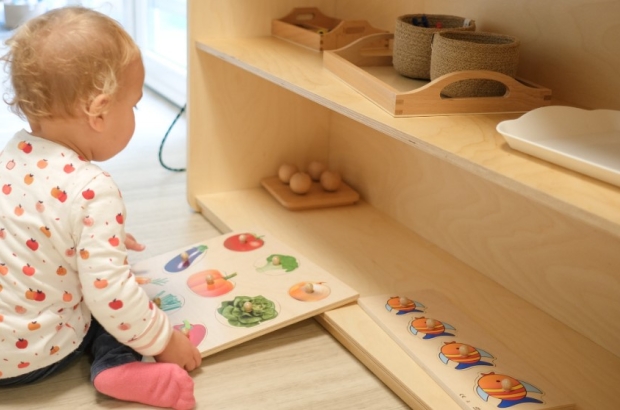- Daily & Weekly newsletters
- Buy & download The Bulletin
- Comment on our articles
850 more Dutch-speaking creche places in Brussels
An additional 10,000 childcare places will be created now that the Flemish childcare reform has been approved, including about 850 in Brussels.
The majority - 6,000 places - will be income-related, where parents will pay a contribution in proportion to their income.
“Every city or municipality can apply,” minister Caroline Gennez (Vooruit) said. “We will give priority to regions where the need is greatest.”
The areas with the greatest shortages – such as Brussels, Antwerp and Ghent – will be given priority in the procedures for the project calls. Brussels will receive 850 additional places, 450 of which are income-related, according to Flemish minister for Brussels Cieltje Van Achter (N-VA).
Separately, Brussels will also receive another 400 new places with basic subsidies, where the childcare initiatives themselves determine what contribution parents pay.
There will also be additional calls for local offices, childcare needs and innovative projects, which could provide up to 150 additional places.
“In a metropolitan context, families should be able to count on affordable childcare close to home and in their own language,” said Van Achter, who helped draw up the plans. “This expansion is an important step forward.”
Gennez said the Flemish investment is aimed at building childcare centres and improving the child-to-carer ratio.
“Flanders will invest an additional €200 million in childcare, both in Flanders and Brussels,” she added.
“With this, we want to give more children an affordable place and attract additional staff. We’re focusing on the three Ps: price, place and personnel. In this way, we are once again making childcare a driver of opportunities for children and giving parents more breathing space.”
Brussels will receive €6 million for the construction and renovation of childcare centres, and Flanders will allocate €60 million for new daycare centres.
Staff will also receive more support, and Gennez believes that focusing on income-related care will also improve working conditions.
The childcare reform also grants full employee status to workers in these creches and aims to reduce workloads with better child-to-carer ratios: for babies up to one year old, this will drop from one adult to eight children, to one to five. For mixed-age groups, it will be one to seven, and for children over one year old, one to eight.
“We’re on track to realise this reduction,” said Gennez. “That will make the work more feasible and more appealing.”
A planned reform of the parental contribution will be postponed until 2026.

















